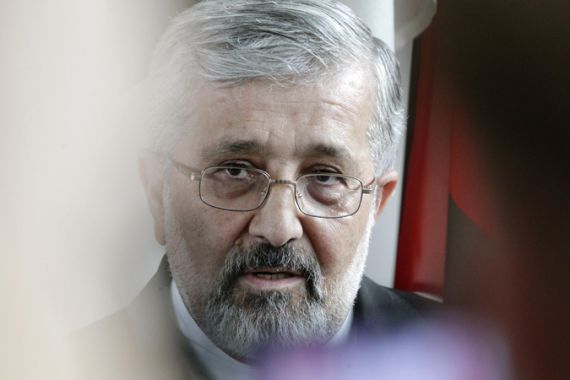IAEA ends Iran talks with no progress
Lack of deal to increase access casts shadow over upcoming Moscow meeting between Iran and six world powers.

New talks between Iran and the UN’s atomic watchdog agency have failed to result in a deal allowing greater access to Iran’s contested nuclear programme.
The meeting between Iran’s representatives and the International Atomic Energy Agency comes ahead of negotiations between Iran and the so-called P5+1 group of nations scheduled to take place in Moscow on June 18 and 19.
“There has been no progress,” IAEA chief inspector Herman Nackaerts told journalists after a day of talks with Iran’s envoy, Ali Asghar Soltanieh.
“Iran raised issues that we have already discussed and added new ones. This is disappointing.”
Soltanieh insisted that Tehran was dedicated to alleviating fears about its nuclear programme, which the government says is for civilian purposes but is highly secret and not completely accessible to international monitors. The United States and other nations suspect Iran is enriching uranium in order to build a nuclear warhead.
“We are ready to remove all ambiguities and prove to the world that our activities are exclusively for peaceful purposes and none of these allegations (of seeking a bomb) are true,” Soltanieh told the media.
According to recent letters exchanged between Iran and representatives from the UN Security Council and China – the members of the P5+1 group – the two sides have not resolved differences that scuttled previous rounds.
Leaked letter
One letter, shared with the Associated Press on Friday, showed Iran seeking an expert-level meeting ahead of the Moscow negotiations to “prepare the necessary ground for the Moscow talks”.
In response, a senior European Union representative speaking for the six powers suggested there was no need for such preliminary talks because the six remain committed to their “straightforward proposal” presented at the last meeting in Baghdad.
The IAEA has been seeking a deal with Iran that would allow greater access to sites, people and documents tied to Tehran’s nuclear programme.
This includes access to the Parchin military base near Tehran, where the IAEA believes suspicious explosives testing was carried out before 2003 and possibly after that.
Soltanieh however dismissed the recent focus on Parchin as politisation by Western countries.
“Whoever raises the issue of Parchin or other sites which is going to be dealt with in this framework … is just creating a negative environment and this is not advisable and this is not conducive,” he complained to journalists.
The investigation has been stalled for nearly five years by Iran’s insistence that it does not need to co-operate because the allegations are based on forged US and Israeli intelligence.
Iran says it needs to continue higher-grade enrichment to 20 per cent to power a research reactor and to make medical isotopes.
Iran denies any interest in nuclear weapons and wants the international community to ease sanctions before it makes a move, something Western nations among the six powers are unwilling to do. Instead, they are offering spare parts for Iran’s aging commercial airline fleet and other goods restricted by sanctions.
But the letters show little progress in bridging differences less than two weeks before the Moscow talks and before sanctions are tightened still further on Iran’s oil.
The United States already has started to enforce penalties against countries importing Iranian crude, and the 27-nation European Union, which recently accounted for 18 percent of Iran’s oil shipments, plans to begin an oil boycott on July 1.
Dated on Monday, the Iranian letter is signed by Ali Bagheri, his country’s number two nuclear negotiator. It complains of a lack “of any oral or written response” to Tehran’s request for a preliminary meeting ahead of the Moscow talks.